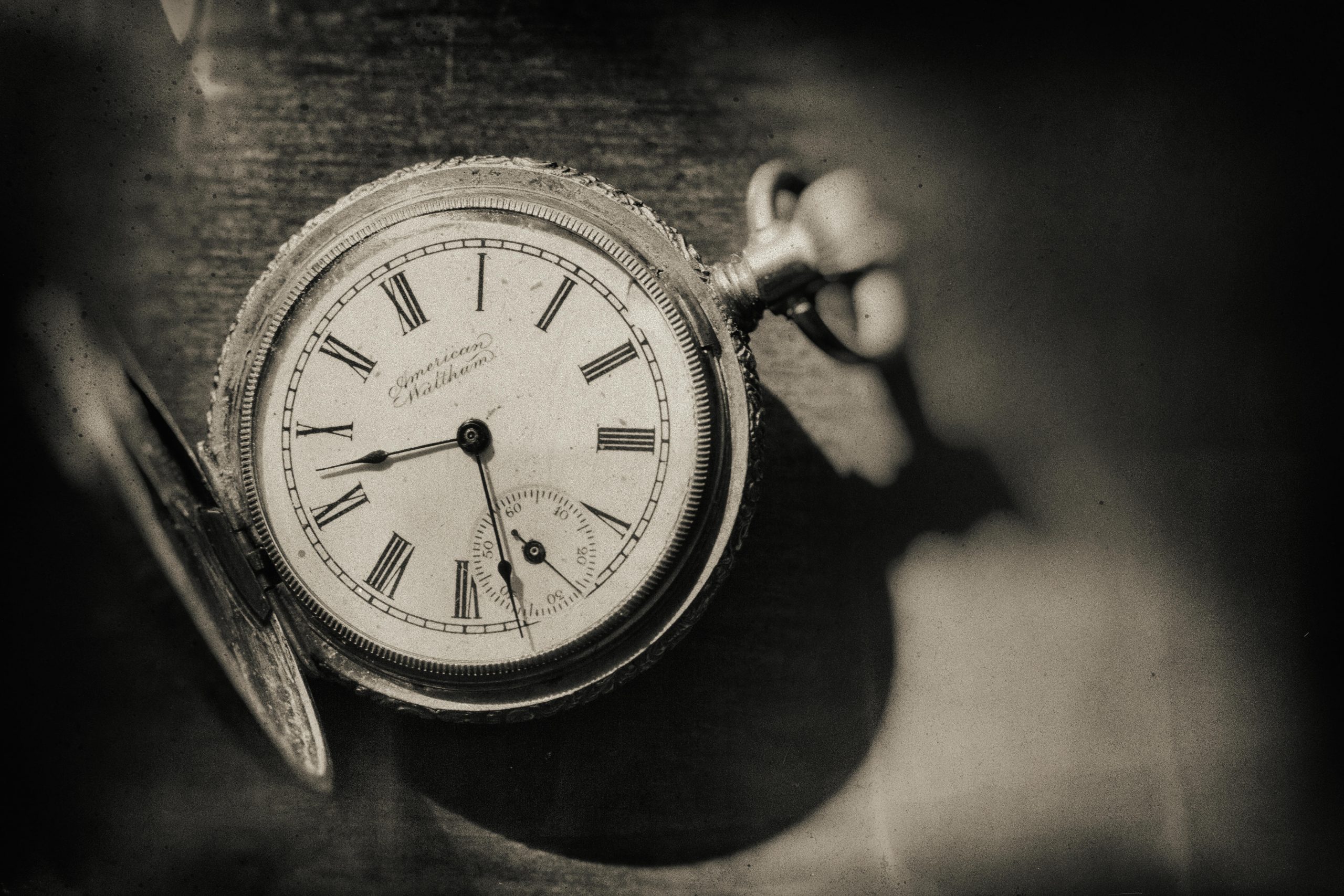Jonathan Self: My 146-year-old timepiece is the antithesis of the smartwatches — and it's all the better for it
How lovely to have a beautiful watch to order your life, says Jonathan Self; but how much better to have no need of one at all.


Exquisite houses, the beauty of Nature, and how to get the most from your life, straight to your inbox.
You are now subscribed
Your newsletter sign-up was successful
On my bedside table is a small, bronze statuette of a begging dog holding a stick with a hook at one end from which, every night before retiring, I hang my pocket watch. The ancient Greeks had two words for time: chronos, being linear, predictable time — as provided by my watch — and kairos, being opportune, chaotic time (immeasurable, but strangely desirable).
Anyway, my watch’s accuracy gives me immense satisfaction, as I have an interest in the jewellery firm (Streeter & Co) that manufactured it 146 years ago. The watch itself is heavy, being made of silver, and must be wound every day using a tiny key. I carry it, suspended on a silver albert, either in the breast pocket of my coat or in the change pocket of my trousers. Getting it out is quite a palaver, but, even so, I probably refer to it a dozen times a day.
Perhaps more to the point, there are very few moments, day or night, when I can’t hear it ticking. I find the steady tick, tick, tick comforting. Intellectually, I know it is an inanimate object, but emotionally I cannot help but think of it as being alive.
In the West, the idea that the non-human world has agency has rather fallen out of fashion. Fewer and fewer people seem to be aware that everything in the universe — rocks, plants, molecules, viruses — has the potential to initiate action.
"I’ve skimmed the paper, half listened to the radio, toyed with my food and slept more than usual. Mostly, however, I have been sitting in my favourite armchair"
What sort of action could my watch possibly initiate? Well, it is the antithesis of those smartwatches that control (and pass comment on) your whole life, from what you eat to when you sleep. On the other hand, it, as opposed to the tilt of the sun, normally orders my day.
I say ‘normally’, because, for the past fortnight, some (hopefully temporary) health issues have resulted in a change of schedule. Being in no condition to work, walk or read (my three main occupations), I have, essentially, been doing nothing. Oh, I’ve skimmed the paper, half listened to the radio, toyed with my food and slept more than usual.
Mostly, however, I have been sitting in my favourite armchair, staring out of the window and ruminating. One result of this has been the realisation that my watch was made in the same year, 1877, that R. L. Stevenson published An Apology for Idlers, his manifesto for voluntary unemployment.
Exquisite houses, the beauty of Nature, and how to get the most from your life, straight to your inbox.
Idleness, so far as Stevenson was concerned, ‘does not consist of doing nothing, but in doing a great deal not recognised in the dogmatic formularies of the ruling classes’. Interestingly, Stevenson, like so many people who promote the idea of a less materialistic, more contemplative life, was indescribably productive. He died at 44, yet still managed to write a dozen novels, several dozen short stories and innumerable essays, articles and poems.
It’s a similar story with Henry David Thoreau (Walden: or, Life in the Woods), Jenny Odell (How to Do Nothing), Tom Hodgkinson (The Idler), et al. That is to say, they espouse a philosophy they do not practise.
There are, of course, exceptions, my favourite being Shoji Morimoto, who decided he no longer wanted to be a writer or, for that matter, anything else. He became ‘Rental Person Who Does Nothing’, offering his company — but no more — to anyone willing to pay his expenses.
He, too, has produced a book, but, in keeping with his principles, he didn’t write a word, only answering interview questions. In the short introduction, he boasts: ‘I have, as usual, done nothing.’
Clearly, a man with no need for a watch.
After trying various jobs (farmer, hospital orderly, shop assistant, door-to-door salesman, art director, childminder and others beside) Jonathan Self became a writer. His work has appeared in a wide selection of publications including Country Life, Vanity Fair, You Magazine, The Guardian, The Daily Mail and The Daily Telegraph.
